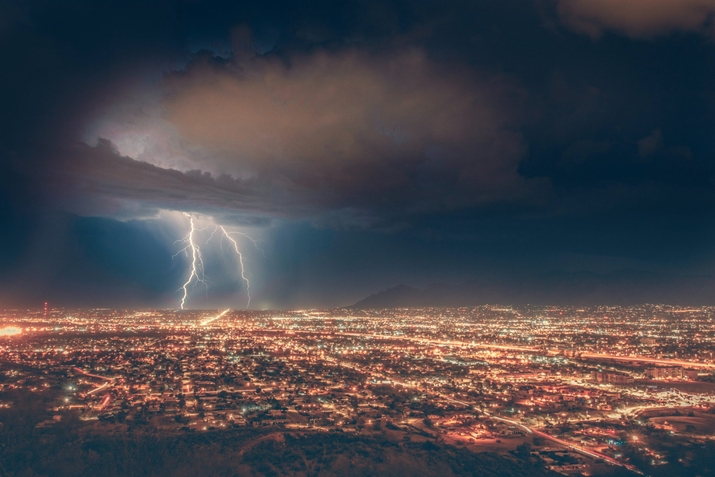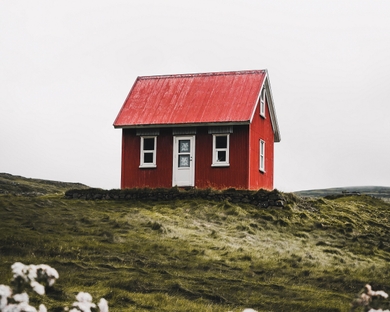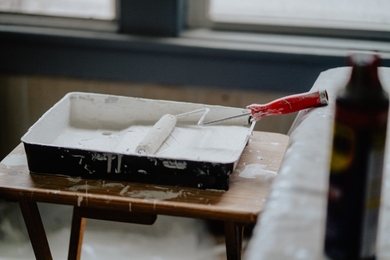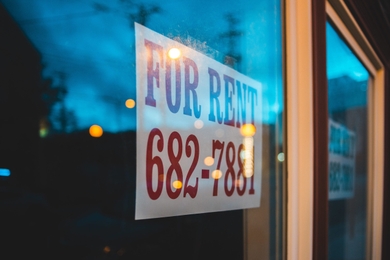Storm Damage: Does Homeowners Insurance Cover It? | Gabi

As a responsible homeowner, you should protect your property with sufficient insurance coverage. However, you can’t foresee severe weather conditions that may bring about drastic consequences. Damages caused by natural disasters are very common so you have to read your policy carefully to make sure you’re protected. That is where storm damage insurance comes in.
What about storm damage? Does homeowners insurance cover it? There are certain types of storm damage that are covered under a standard homeowners insurance policy:
- Lightning
- Fire
- Smoke
- Wind
- Hail damage
- Ice
- Power surges – Sometimes homeowners insurance covers power surges and outages due to a lightning strike, and will reimburse you within your policy limits for damaged appliances or electronics.
- Water damage (exclusions apply) – If the loss was caused by a burst pipe or a faulty plumbing system (not due to your negligence), you’ll be covered under your home insurance. But if the water damage happened as a result of a flood from an external source, you need to purchase separate flood insurance for that.
What is storm insurance?
Storm insurance isn’t actually a separate insurance policy, it’s a part of your home insurance. It will cover you in the event of property damage caused by an incident related to a storm. If you have this coverage, you can contact your insurance company after a storm and report a claim.
Does homeowners insurance cover wind damage?
Yes, standard homeowners insurance usually provides coverage for wind or tornado-related losses and includes a separate hurricane deductible. Wind coverage will cover certain damages caused by wind, such as roof damage or fallen trees.
However, some insurance providers may exclude windstorm coverage from their home insurance offers so you always need to make sure you are protected. Also, not all storm consequences are included in standard homeowners insurance. This applies to floods and earthquakes, for which you need to buy additional coverage. You can ask your insurance agent if you’re not sure what your policy covers.
Here’s what you should focus on:
- Dwelling coverage – covers the structure of your home. You have to purchase enough “Coverage A” to be able to rebuild your home from scratch if necessary.
- Personal property coverage – Your insurer will reimburse you for any damages to your personal possessions by paying out either their actual cash value or replacement cost. If you want to receive the amount that will pay for replacing them, opt for the latter option. However, it may result in a higher policy premium. Also, remember that your car won’t be covered by your homeowners policy, so you need to purchase a separate auto insurance policy for that (and add comprehensive coverage to be protected in case of a storm).
- Additional living expenses – if your home is uninhabitable due to covered storm-related damage, this coverage will bear the costs of hotel bills and any other spendings coming from moving out of your home (limits apply).
- Other structures – known as “coverage B”, covers other structures on your property like a detached garage, fence
How do claims work?
If after a storm-related occurrence your property suffers from any damage, reach out to your insurance company to submit a claim. Depending on who you have your insurance with, you can do it via phone, online, or on your account. You need to prepare a short description of the loss and provide the necessary information (such as the date) to make the whole claims process quicker. Document the damage by taking the photos or recording a video.
Your insurer will then assign an adjuster to determine the size of the loss. You’ll be responsible for paying the deductible stated in your policy, and the rest of the costs will be covered by your insurance company (within your coverage limits).
Does homeowners insurance policy cover hurricane damage?
A standard homeowners policy will pay out for most of the damages caused by wind or a hurricane. However, inhabitants of coastal areas might have to purchase additional windstorm insurance in form of a rider on their home policy or as separate insurance. For example, if you live in Texas you can visit this site to learn more about windstorm insurance in your area.
If you’re a homeowner, you probably want to protect your home and personal property in the event of storm damage. Having sufficient coverage and policy limits is very important. If you want to make sure you’re a well-protected policyholder and are getting the most affordable price, go to gabi.com and compare insurance quotes for free!









